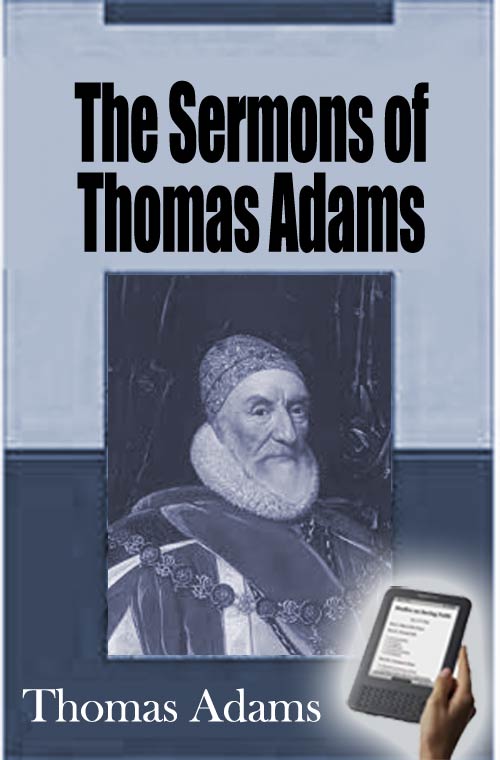 by Thomas Adams
by Thomas Adams
Available in ePub and .mobi formst
A Selection of Sermons
THOMAS ADAMS, a Selection from whose Sermons is here given, was an English divine of the 17th Century whom Southey pronounced to be the ‘prose Shakespeare of Puritan theologians scarcely inferior to Fuller in wit or to Taylor in fancy.’ Another eminent writer, of later date, claims for Adams that ‘he stands in the forefront of our great English preachers, and while not so sustained as Jeremy Taylor, nor so continuously sparkling as Thomas Fuller, is yet surpassingly eloquent and brilliant, and much more thought-laden than either.’
Our earliest personal knowledge of this Puritan preacher is derived from the title-page of one of his sermons published in 1612, which describes him as ‘a preacher of the Gospel at Willington’ which is a rural parish in Bedfordshire, four miles east of Bedford town. The neighbourhood of Willington vicarage was not even then without some literary associations of its own. For two miles away stands the pleasant village of Cardington where in 1525 George-Gascoigne was born, our earliest English satirist, and one of the earliest of our strictly vernacular poets. He too has had his name connected with that of Shakespeare, for it has been said that the Winter’s Tale was in part suggested by the joint version of the Phenissae by Gascoigne and Kinwelmersh; and Gascoigne’s Steele Glas may be said to be Shakespeare’s Mirror held up to Nature’ before Shakespeare’s time — a glasse wherein each man may see within his mind what canckred vices be.’ Again, coming to a later time, just across the Cardington border, in the East Fields of the parish of Elstow, stood the wayside cottage where in 1628 John Bunyan was born; and a mile away to the south was Cople Wood End, where Samuel Butler formed part of the household of Sir Samuel Luke and where he wrote his Hudibras.
On leaving Willington, Thomas Adams became till 1636 Vicar of Wingrave, Bucks, and during the years he was there he seems also to have held the preacher-ship of St Gregory’s under St Paul’s Cathedral, and was also Occasional Preacher at Paul’s Cross and at Whitehall. In addition to these appointments he was ‘Observant Chaplain’ to Sir Henrie Montague, Lord Chief Justice of England. From the Epistles Dedicatory to his various works we gather that Adams lived on friendliest and most intimate terms with some of the foremost men in State and Church. William, Earl of Pembroke, Sir Thomas Egerton, Lord Ellesmere, and other men of rank are addressed by him as personal friends rather than as nobles and patrons.
A collection in one volume folio of Adams’s Works, edited by himself was printed for John Grismond and sold at his shop in Live Lane at the sign of the Gunne, 1629.’
J. B.
April, 1909.
